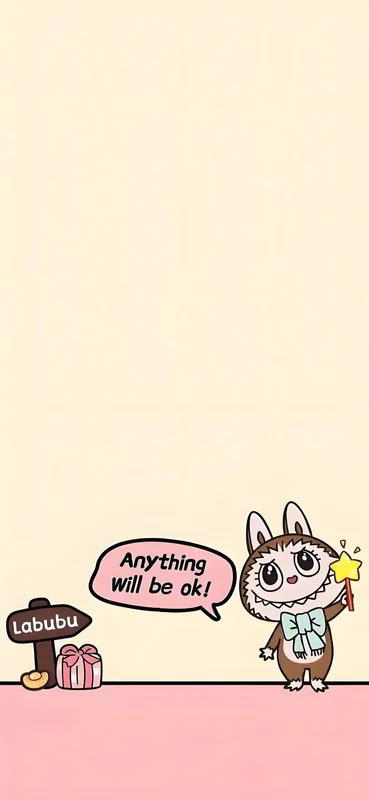ラブブの魔法の約束:きっと大丈夫!
モバイルイエローカートゥーン
魔法の杖を持ったラブブのフィギュアが、吹き出しで安心感を与えています。
その他の壁紙
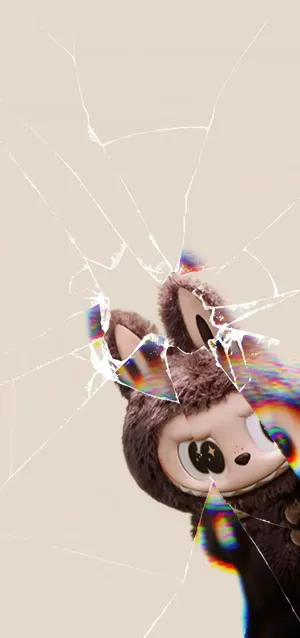
The title "Labubu Peekaboo Through Shattered Screen" can be translated into Japanese as: **「ラブブーの覗き見、割れた画面を通して」** (Rabubū no nozokimi, wareta gamen o tōshite) Here’s a breakdown of the translation: - **Labubu** → ラブブー (Rabubū, a phonetic adaptation) - **Peekaboo** → 覗き見 (nozokimi, meaning "peeking" or "peekaboo") - **Through** → を通して (o tōshite, meaning "through") - **Shattered Screen** → 割れた画面 (wareta gamen, meaning "shattered screen") Let me know if you'd like further adjustments!

Here’s the translation of the title into Japanese: **スマートラブブの良い習慣の壁紙** (Smāto Rabubu no Yoi Shūkan no Kabe Kami) Let me know if you'd like further adjustments!
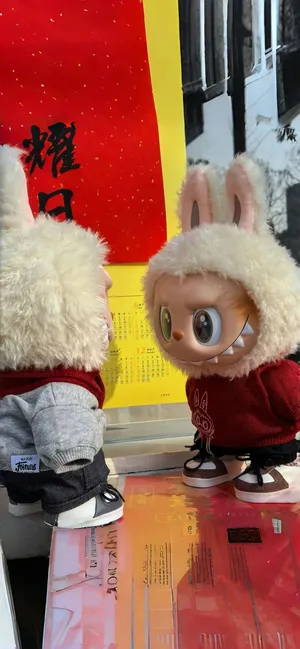
Labubu's Lunar New Year Duo
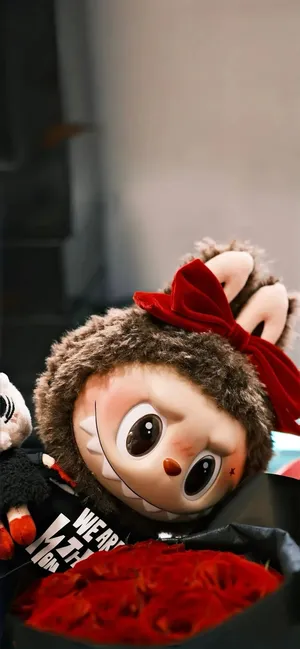
Labubu's Valentine's Day
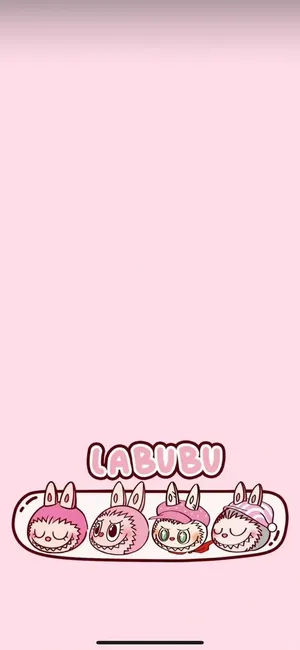
The title "Labubu Pals Pastel Pink Wallpaper" can be translated into Japanese as: **ラブブパルズ パステルピンクの壁紙** (Rabubu Paruzu Pasuteru Pinku no Kabe Kami) Here’s the breakdown: - **Labubu Pals** → ラブブパルズ (Rabubu Paruzu) - **Pastel Pink** → パステルピンク (Pasuteru Pinku) - **Wallpaper** → 壁紙 (Kabe Kami) This translation maintains the original meaning while adapting it for a Japanese audience.
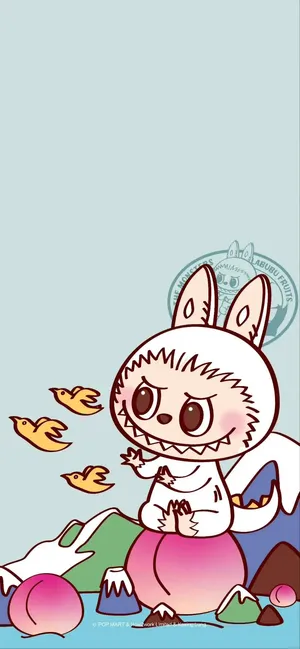
Labubu's Peach Mountain Adventure

The title "Love-eyed Labubu and Mini Monster Friend" can be translated into Japanese as: **「恋する目のラブブと小さなモンスターフレンド」** (Ren suru me no Rabubu to chiisana Monsutā Furendo) Here's the breakdown: - "Love-eyed" → 「恋する目の」 (Ren suru me no) - "Labubu" → 「ラブブ」 (Rabubu) - "Mini Monster Friend" → 「小さなモンスターフレンド」 (Chiisana Monsutā Furendo) Let me know if you'd like further adjustments!
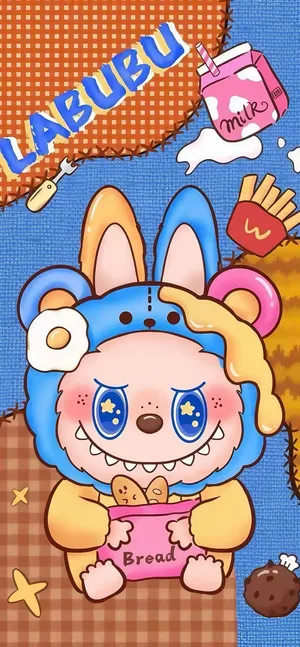
Labubu's Breakfast Feast Wallpaper

The title "Cozy Labubu Winter Adventure" can be translated into Japanese as: **「ぬくぬくラブブの冬の冒険」** (Nukunuku Rabubu no Fuyu no Bōken) Here’s the breakdown: - ぬくぬく (Nukunuku) conveys the cozy, warm feeling. - ラブブ (Rabubu) is the Japanese transliteration of "Labubu." - 冬の冒険 (Fuyu no Bōken) means "Winter Adventure." This translation keeps the warm, adventurous tone of the original title!

Here’s the translation of the title into Japanese: **秋のベンチサイド・ラブブ:黄金の時間の静けさ** (Aki no Benchside Labubu: Ōgon no Jikan no Shizukesa) Breakdown: - **秋** (Aki) = Autumn - **ベンチサイド** (Benchside) = Benchside - **ラブブ** (Labubu) = Labubu (a character name, kept as is) - **黄金の時間** (Ōgon no Jikan) = Golden Hour - **静けさ** (Shizukesa) = Serenity Let me know if you'd like further adjustments!

不気味なラブバニーがニヤリと笑い、遊ぶ準備ができています (Fuki-mena Rabu Banī ga Niyari to Warai, Asobu Junbi ga Dekiteimasu) This translation captures the essence of the title, maintaining the creepy and playful tone of the original. "Labubu" is transliterated as "ラブ" (Rabu), and "Bunny" is written as "バニー" (Banī). The phrase "ニヤリと笑い" (Niyari to Warai) conveys the grinning aspect, while "遊ぶ準備ができています" (Asobu Junbi ga Dekiteimasu) means "ready to play."

The title "Labubu and Panda chilling on the couch" can be translated into Japanese as: **「ラブブとパンダがソファでのんびり」** (Rabubu to Panda ga sofa de nonbiri) This translation captures the relaxed vibe of the original title.
その他の商品

Funny Labubu Lover Cute Labubu T-Shirt
$14.99

ベアー Labubu Lover かわいい Labubu The Monsters クリスマス ガールズ ステンレススチール製 保温タンブラー
$21.99

labubuドール用服, labubuぬいぐるみ用服, labubu用アクセサリー, Abub 服, abubu アクセサリー, labubuドール服, labubuドールアクセサリー
$18.90
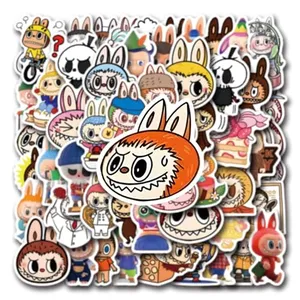
55個入り ティーンズ向け ラブブ かわいいステッカー 水筒用 日本のトレンディーなテラーアニメ 防水ビニールデカール キッズ 大人 ノートパソコン 車 電話 スーツケース スケートボード ノート ジャーナル
$5.99

ANYRIX かわいい漫画 Phone 12 ケース LABUBU リボン Phone ケース TPU かわいい シリコン 傷防止 耐衝撃 キッズ 女の子 女性 (12pro, ブラウン)
$11.99
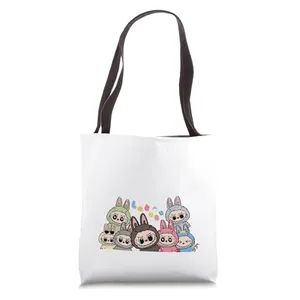
Labubu Lover Cute Labubu The Monsters Men Women Tote Bag
$18.99
